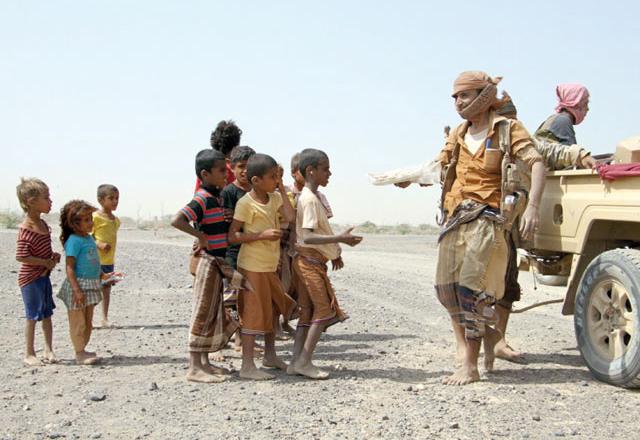- International News
- Sun-2020-07-12 | 03:19 pm

The WFP said it needed $737 million to the end of the year to keep its aid programme running in the war-torn country, which is gripped by what the United Nations calls the world's worst humanitarian crisis.
"The humanitarian situation is deteriorating at an alarming rate, pushing people to the edge," WFP spokeswoman Elisabeth Byrs told a virtual briefing in Geneva.
"We must act now. If we wait for famine to be declared, it will already be too late as people will already be dying."
She said the famine warning signs were already present.
"Yemen is facing a crisis on multiple fronts. Imports have declined, food prices are soaring, the riyal is in freefall, and foreign currency reserves are nearing total depletion,” said Byrs.
The spokeswoman said more than 20 million people were food insecure in Yemen, of which 13 million receive humanitarian food assistance.
Meanwhile two million children, plus a million pregnant or breastfeeding women, require treatment for acute malnutrition.
Byrs said WFP distributions were down to once every other month in the north of the country and the UN agency hoped it would not have to do the same elsewhere.
Yemen’s war between Iran-backed Houthi rebels and pro-government troops escalated in March 2015, when a Saudi-led military coalition intervened against the rebels who control large parts of Yemen including the capital Sanaa.
Tens of thousands have been killed, an estimated four million displaced and 80 per cent of the country’s 29 million people are dependent on aid for survival.
The coronavirus pandemic is also raging unchecked in the country.
The UN raised only around half the required $2.41 billion in aid for Yemen at a June donor conference co-hosted by Saudi Arabia.













